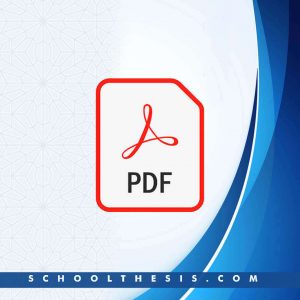
Nativization of English in African Literary Texts a Lexico-semantic Study of Transliteration in Gabriel Okara’s the Voice Ebi Yeibo
Abstract of Nativization of English in African Literary Texts a Lexico-semantic Study of Transliteration in Gabriel Okara’s the Voice Ebi Yeibo
As a result of the bilingual nature of African nations due to the historical accident of colonialism, the problem of which language (ie. Indigenous or colonial language) to adopt for literary expression, has lingered on. This has precipitated the use of various devices by African writers to contextualize aspects of indigenous meaning in the L2 text. Against this background, the present study examines lexico-semantic aspects of transliteration in Gabriel Okara’s The Voice (1964), using the parameters of Robert Lado’s contrastive analysis. The study explores the various sociolinguistic constraints which determine appropriate lexical choices in the text. The main aim is to enhance understanding and appreciation of the language of Okara’s The Voice in particular and African literature in general. The study also highlights the importance of lexis and meaning, as distinctive levels of language, to the construction of any literary discourse. Keywords: Nativization, African literature, lexico-semantic, transliteration,Gabriel Okara,The Voice Introduction Every Literary text is constructed with language. Therefore, it is imperative to determine how a particular writer has utilized the potentials of language to negotiate meaning(s) for his text This thesis is anchored on the premise that, as Brumfit and Carter (1986) put it, we need to show “how what is said is said and how meanings are made” within the psycholinguistic and sociolinguistic ambience of the text. As a bilingual and bicultural text, the structure of language use in Okara’s The Voice “calls attention to itself” (Murakarovsky, 1964:58), in the sense that the author manipulates and adapts the rhythm, register, syntax and semantics of the English Language to the linguistic and cultural nuances of his native ijaw Language. Specifically, the peculiarity of Okara’s linguistic style in the text under study is a product of, or direct response to, the lingering problem of language in African literature. This problem borders on whether or not the colonial linguistic media (i.e. Portuguese, English, French etc), would be able to adequately and authentically express the socio-cultural and linguistic realities of the African continent. Scott (1990) refers to it as: ….the long-standing debate among critics of African literature over the relation between African authors and the colonial linguistic legacy. This debate which has dominated Africa literature in the past fifty years (Osundare, 2004), stems from the recognition among African scholars/writers of the centrality of language to literature, and the close connection between political independence and cultural emancipation. As literary works are cultural artifacts, the basic thinking is that, the use of colonial languages in African literature is a willing perpetuation of imperialism. Significantly, there has been a sustained polarity of opinion about the appropriate attitude the African writer should adopt to this phenomenon. These range from the fervidly nationalist to the stridently compromising. Osundare (2004) identifies three “attitudes” viz: (i) accomodationist, (ii) gradualist, and (iii) radicalist. According to this scholar, the first group (i.e. accommodationist), which has as its chief promoter, Leopold Sedar Senghor of Senegal, favours an outright use of imperialist languages; while the “gradualists” are “the dwellers of the middle of the road”, prominent among whom is Ali Mazrui who advocates a de-Anglicization and re-Africanization of the English language, to authentically convey Africa’s literary sensibilities. The third group, on the other hand, is the “radicalist” composed of writers who call for an immediate adoption of indigenous African languages as the media of literary expression. Obi Wali and Ngugi Wa Thiongo are proponents and exponents of this attitude. Instructively, majority of African writers belong to the “gradualist” group identified above (i.e. indigenizing the colonial language).
